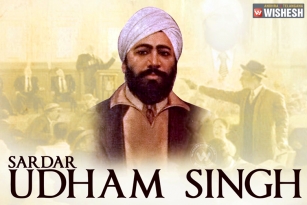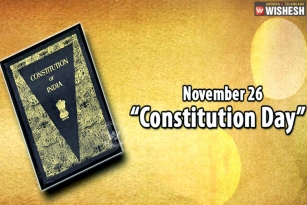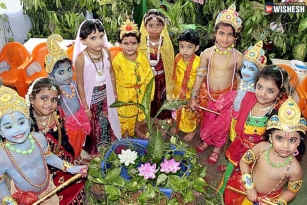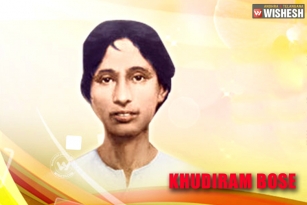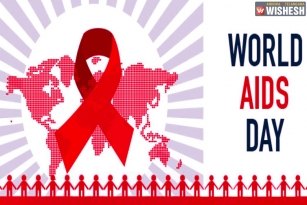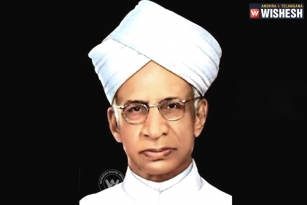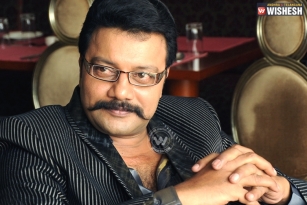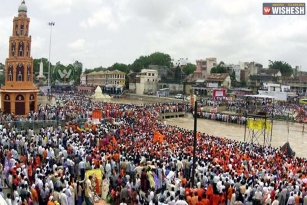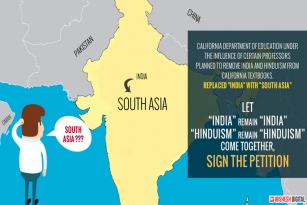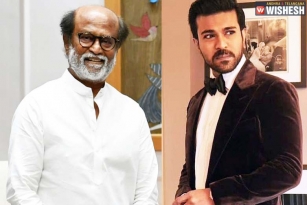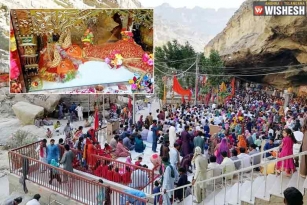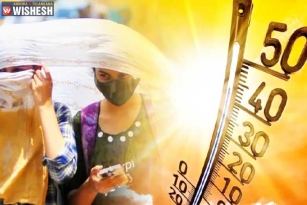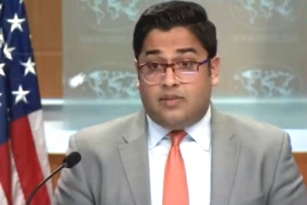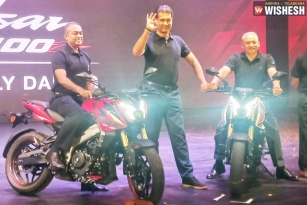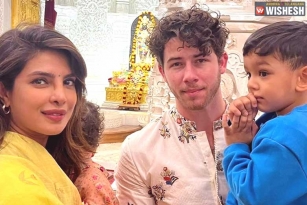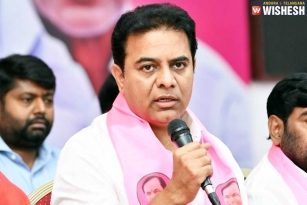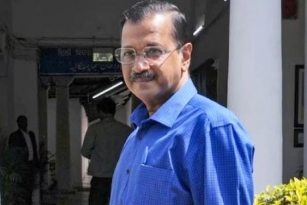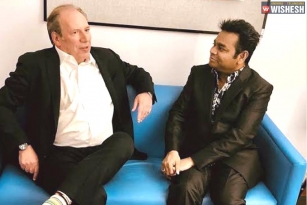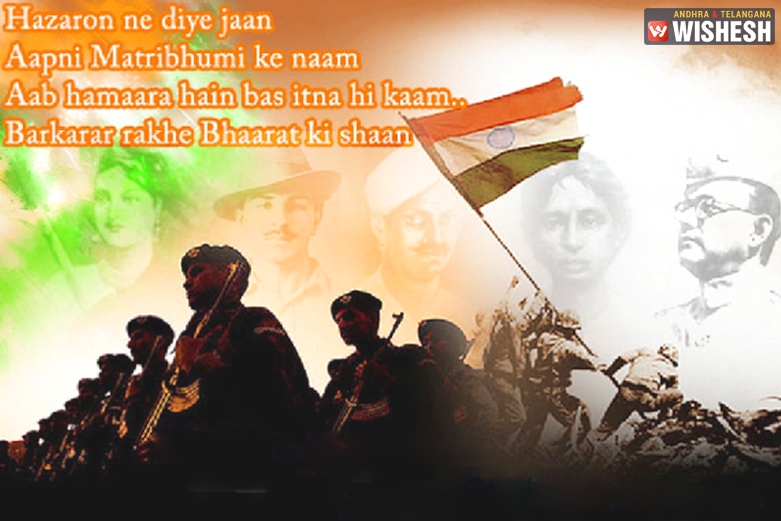
The Indian freedom Movement encompasses the activities and ideas aiming to end the East India Company rule from 1757 to 1858 and the continuation as the British Raj from 1858 to 1947. The freedom movement saw various national and regional campaigns, agitations and efforts, some nonviolent and some revolutionary.
The first organized militant movements were from Bengal, but they later took in to the political stage with the prominent moderate leaders seeking only their basic right to appear for the Indian Civil Service examinations, as well as more rights, economic in nature, for the people of the soil.
Revolutionaries such as Subhas Chandra Bose and Bhagat Singh preached armed revolution to achieve independence. Poets & writers such as Allama Iqbal, Mohammad Ali Jouhar, Rabindranath Tagore and Kazi Nazrul Islam used literature, poetry and speech as a tool for political awareness. Feminists such as Sarojini Naidu and Begum Rokeya championed the emancipation of Indian women and their participation in national politics. Babasaheb Ambedkar championed the cause of the disadvantaged sections of Indian society.
European traders first reached the Indian shores with the arrival of the Portuguese explorer Vasco da Gama in 1498 AD at the port of Calicut, in search of the lucrative spice trade. The Dutch and English established trading outposts on the subcontinent, with the first English trading post set up in Surat in 1612. During 17th and early 19th centuries, the British defeated the Portuguese and Dutch militarily and established themselves in the subcontinent. The decline of the Mughal empire in the first half of the 18th century, provided the British with the opportunity to seize a firm foothold in Indian politics.
In 1835, English was made the medium of instruction in India's schools and tried to inject the venom of communalism in to the people of Hindustan. Convertion to Christianity was propagated in a big way. Educated Hindu elites sought to rid Hinduism of controversial social practices, including the Varna caste system, child marriage and Sati. Literary and debating societies established in Calcutta (Kolkata) and Bombay (Mumbai) became forums for open political discourse.
Puli Thevar was one of the earliest opponents of the British rule in India, who rebelled against the British in the late 1750s and early 1760s. Kerala Varma Pazhassi Raja was one of the earliest freedom fighters in India between 1774 and 1805. The British ruthlessly killed all his followers and their families.
Veerapandiya Kattabomma Karuthayya Nayakkar was a courageous 18th-century Palayakarrar chieftain from Panchalankurichi of Tamil Nadu, India. He waged a war with the British, six decades before the Indian War of Independence occurred in the Northern parts of India. He was captured and hanged in 1799.
Paik Rebellion gave the nation the first direction towards the war for Independence. In September 1804 the King of Khurda, Kalinga, was deprived of the traditional rights of the Jagannath Temple. In October 1804 a group of armed Paiks attacked the British at Pipili. Jayee Rajguru the chief of Army of Kalinga, requested all the Kings of the State to join hands for a common cause against the British. The Kings of Kujang Odisha, Kanika, Harishpur, Marichipur and others made an alliance with the King of Khurda and prepared themselves for the battle. Jayee Rajguru was later hailed as the first martyr of India against Britain. Jayee Rajguru was killed on 6 December 1806 in a procedure in which executioners tied his legs to the opposite bounded branches of a tree and released the branch. But the rebellion had not stopped and Bakshi Jagabandhu commanded an armed rebellion against the British East India Company's rule in Odisha which is known as Paik Rebellion.
The garrison of the Vellore Fort in July 1806 comprised four companies of British infantry from H.M. 69th (South Lincolnshire) Regiment of Foot and three battalions of Madras infantry. Two hours after midnight, on 10 July, the sepoys in the fort shot down the European sentries and killed fourteen of their own officers and 115 men of the 69th Regiment. Among those killed was Colonel St. John Fancourt, the commander of the fort. The rebels seized control by dawn and raised the flag of the Mysore.
The rebellion of 1857 was a large-scale rebellion in northern and central India against the British East India Company's rule. There are many unsung heroes who have sacrificed their lives selflessly for the independence of Hindustan, but were conveniently forgotten when the freedom movement got momentum.
The period of the Second World War saw the peak of the freedom movement by the Quit India movement and the Indian National Army (INA) movement and others, eventually resulting in the withdrawal of the British.
The Indian Independence Act 1947 was the implementation of the June 3 Plan. The Act's important provisions were as below:
1. Division of British India into the two new and fully sovereign dominions of India and Pakistan, with effect from 15 August 1947
2. Partition of the provinces of Bengal and Punjab between the two new countries
3. Establishment of the office of Governor-General in each of the two new countries
4. Conferral of complete legislative authority upon the respective Constituent Assemblies of the two new countries
5. Termination of British suzerainty over the princely states, with effect from 15 August 1947
6. The Dominion of India may be regarded as an expression of the desire for self-government of the Hindus in India
7. The Dominion of Pakistan as the expression of the demand for self-government by the Muslims
The power hungry leadership comprising Jawaharlal Nehru of Indian National Congress accepted the terms and conditions for the independence. Even Gandhi remained a mute spectator in front of Nehru, which was a big mistake for which even now the people of India and Pakistan suffering without a solution to end the enmity. Also the decision of the congress to make Nehru to lead the country, instead of Sardar Patel was a worst decision.
By Premji


